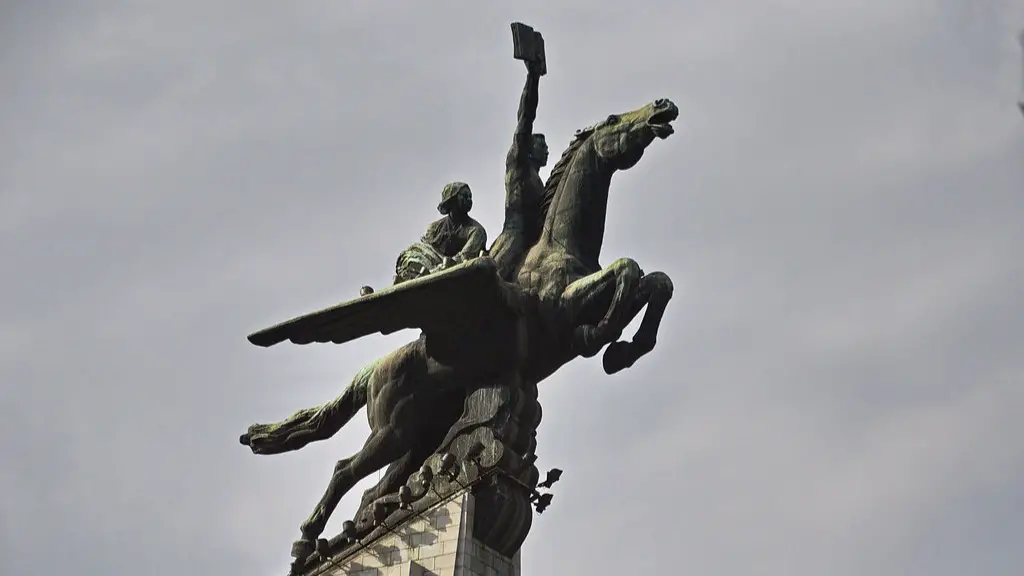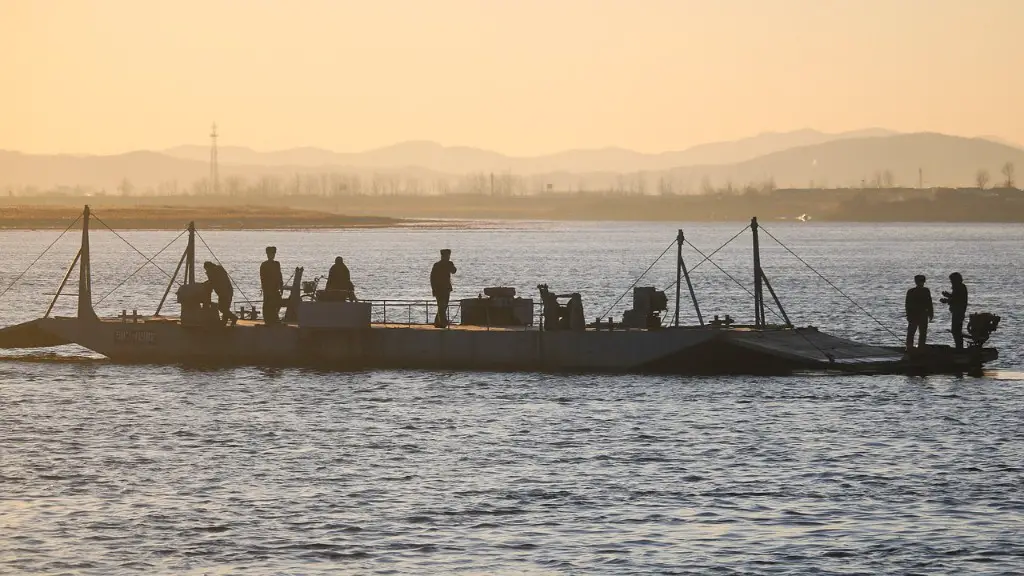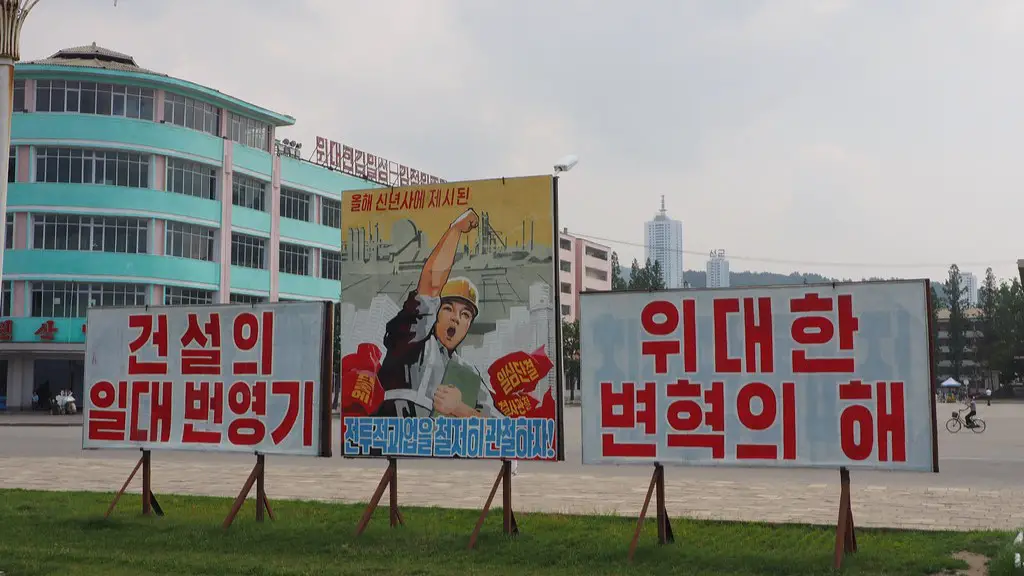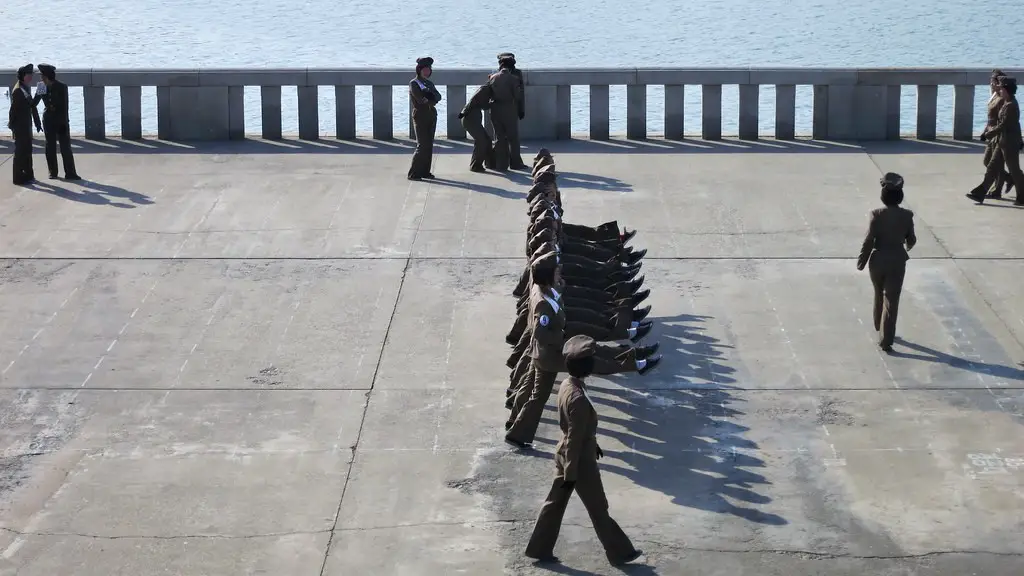Life in North Korea is unlike anything you will experience in the rest of the world. Long isolated from the outside world and ruled by an oppressive regime monopolizing power, the government has locked in a tightly-controlled command economy without any meaningful economic or political reforms. North Korea is the only demonstrated nuclear power in the world and has a population of 25 million people. From the outside, North Korea looks like a distant and hostile kingdom, but there is a lot more to this isolated nation than meets the eye and initiatives are being taken to try to improve lives on the ground.
The North Korean economy is highly centralized and regulated by the state, mainly through public ownership and a large bureaucracy. There is an official ration system in the country, but even this is inconsistent and many North Koreans engage in some form of informal market trade. This can be dangerous, as the government has been known to crack down hard on such activities. North Koreans often lack access to basic necessities such as food, medicine, and electricity. Access to the internet is also heavily regulated, and most North Koreans are not allowed to access the outside world.
Though isolated and suffering from economic hardship, North Koreans have a vibrant culture. Music, theatre, and art are all important to everyday life. Despite a strict regime and the economic deprivation of its citizens, North Korea has not been completely closed off to the world. Tourists are allowed to enter the country, though they must comply with all state regulations. Only limited access is granted to selected places and tour companies are tightly controlled. Private citizens continue to face grave human rights violations and freedom of expression is severely restricted.
In recent years, North Korea has taken an important step to improve ties with the outside world. In 2018, North Korea agreed to have its leader Kim Jong Un meet with US President Donald Trump in Singapore, a historic summit seen as a sign of tentative progress towards reducing tensions between the two countries. Since then, Kim has also met with other world leaders and opened up diplomatic channels with other countries. The impacts of these diplomatic efforts on the lives of everyday North Koreans remain to be seen, but they are hopefully a sign of positive change.
In the indefinite future, it appears that the situation in North Korea is unlikely to change much. But, initiatives such as increased diplomacy and tourism have the potential to gradually create more openness and slowly open up North Korea to the world. After all, the North Korean people are just like the rest of us and despite facing life in an isolated nation, display qualities of resilience, creativity, and determination.
Economic Impact of North Korea
The economy of North Korea is heavily reliant on military spending and state-run organizations. Private sector activities are strictly limited, and the citizens of North Korea face restrictions on what they can do and where they can go. The official gross domestic product is difficult to accurately measure, but it is estimated to be around 40 billion US dollars and GDP per capita is around 2,200 US dollars. This puts North Korea in extreme poverty levels and it has been estimated that around a third of the population is facing malnutrition or food insecurity.
The lack of economic rights and freedom essentially locks North Korean citizens in an economic straightjacket, exacerbated by sanctions imposed by the US and UN. These economic sanctions have created a deep spiral of poverty for the North Korean people and have resulted in serious malnutrition and a lack of access to basic resources such as food and clean water. North Korea is heavily dependent on foreign aid and is the recipient of food assistance from the United Nations, China, and South Korea.
Despite the extreme poverty levels, North Korea’s economy is undergoing some tentative reforms. The government is reportedly encouraging the growth of small businesses and allowing greater access to foreign investors. Additionally, North Korea has opened a special economic zone near the Chinese border to encourage more cross-border trade. These reforms, albeit tentative, could potentially provide economic opportunities in the future and contribute to a more prosperous North Korea.
Mobility and Technology
The North Korean regime has maintained strict controls on all forms of communication and movement. Access to outside media and the internet is extremely limited and those caught engaging with it unauthorized risk harsh punishments. Similarly, North Koreans need permission to move between cities and provinces and are denied permission in most cases. There are also strict regulations on foreigners traveling to and from North Korea.
Despite these restrictions, North Korea is undergoing a technological revolution. Recent estimates suggest that there are around 1 million smartphones in the country and mobile internet networks are being set up. North Koreans are increasingly relying on smartphones for news and information, and there have been reports of North Koreans engaging in government-sanctioned chat apps to communicate with their families and friends. Additionally, North Korea has increased its use of digital currency in recent years, allowing citizens to make digital payments.
The rise in digital technologies in North Korea, monitored by strict censorship and surveillance, has the potential to impact the global perception of the country. North Koreans are increasingly gaining access to the outside world and learning more about the realities of the western world. There are initiatives such as educational campaigns that use mobile technology to reach rural communities.
North Korean Trade Relations
North Korea is a hermetically sealed state, insulated from the world by its highly secretive government. The country has few formal trade relations with other nations and most of its imports and exports come through just two neighboring countries: China and Russia. China is North Korea’s biggest trading partner, accounting for as much as 90% of all trade. North Korea’s main export is coal, minerals and textiles, whereas its main imports include fuel, machinery, vehicles, and agricultural products. North Korea also relies on international aid for food and other essential supplies.
North Korea has few formal diplomatic and economic ties with the United States. The United States has imposed severe economic sanctions on the country in response to its nuclear program and human rights abuses. Historically, North Korea has maintained close ties with Russia, however, in recent years tensions have been rising between the two countries. North Korea’s largest trading partner, China, has played a key role in influencing North Korea’s economy and external relations. Chinese investments and companies have developed large industries in the North Korean economy.
Internally, North Korea has a heavily restricted economy, and while they are allowed to engage in limited amounts of international trade, there is still little incentive to do so given the lack of capital, high production costs, and lack of access to technology. North Korea’s economy remains largely isolated from global markets, and its currency is not accepted internationally. It is difficult for North Korean businesses to secure loans, and this limits their ability to expand.
Social Indicators for North Korea
North Korea has long suffered from a range of social problems and abysmal human rights violations. The country is heavily isolated from the outside world, and its oppressive regime has created an environment of fear and intimidation. With a lack of freedom of speech, thought and movement, it is estimated that around 200,000 political prisoners are held in prison camps in North Korea. In contrast to the lack of freedom, education and health care are heavily prioritized and the government provides them for free. There is also universal access to basic needs such as food and water.
North Korea is a patriarchal society and human rights indicators are extremely low with extremely limited freedoms for women. Crimes against women remain woefully underreported. North Korea is ranked highest in the world for gender inequality between men and women in the World Economic Forum’s Global Gender Gap Index. The 2018 Human Rights Watch report found that North Korean women are subjected to sexual violence, and the government does not have a system for addressing gender-based violence with the necessary severity.
In addition, there are severe restrictions on freedom of religion and North Koreans are only allowed to practice state-sanctioned religion. Individuals who are caught practicing religion or displaying religious symbols or materials may be arrested and sent to prison camps. Additionally, access to online content is restricted and monitored, and citizens must provide proof of loyalty to the regime. All of these conditions contribute to the tremendous social distress that North Korean citizens live in.
International Initiatives in North Korea
Several international organizations are working to improve the human rights situation in North Korea. The United Nations is in charge of a global monitoring process that tracks the situation in the country. Other NGOs, such as Human Rights Watch, regularly issue reports on the most pressing issues in North Korea and make specific recommendations for improvement.
The United States has also implemented a number of initiatives to promote human rights in North Korea. The Department of State launched the North Korea Human Rights Initiative in 2009, and the United States Agency for International Development has also initiated a broad range of programs to improve access to information, food, and healthcare. Additionally, the United States has increased the pressure on North Korea through sanctions, which have been designed to target key sectors of the North Korean economy.
Moreover, South Korea is also playing an important role in opening up North Korea. In 2018, South Korean companies started a cross-border train line connecting Seoul with Pyongyang. This kind of positive action, albeit symbolic on the international level, is seen as a positive step in opening up North Korea and improving ties with the outside world. It’s also a sign that countries are taking action to improve the lives of the people in North Korea.
South Korea has also signed agreements with the United Nations to work together on tackling the humanitarian crisis in North Korea. In 2018, they launched a $1.7 billion initiative to promote economic development and food security in the country. South Korea has also provided support for refugees fleeing North Korea and improved access to education and essential medical services.





